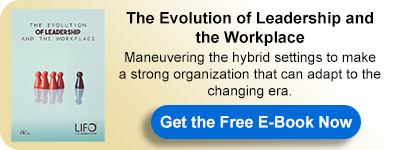Leadership Essentials in a Hybrid Workplace
While a few organizations have elected to stick with a remote-first strategy, others opt for a hybrid model that includes some in-office work. For some organizational leaders, the hybrid leadership challenges that result will be a tall order. To keep their teams motivated and performing, they'll need a new set of talents. It's almost easier if everyone is on the other side of the world.
Managers may rely on one set of abilities to engage teams equally when no one is in the office and prioritize virtual communication and collaboration tools. However, when some employees work in person while others work from home or remotely, a new set of management issues arise.
Because no one can see who is suffering, succeeding, and ready for a new assignment, it's tough to tell who is struggling, who is achieving, and who needs to advance with a new task. Managers must create more adaptable ways to lead meetings and encourage collaboration in this setting.
It All Starts with Acceptance
To accomplish so, CEOs must adopt a hybrid model. That adjustment will be difficult for some leaders.
More than half of employees (55%) prefer to work remotely at least three days a week, according to a January 2021 survey by professional services firm PwC, but 68 percent of CEOs want them in the office at least three days a week. Due to this gap, employers may lose talent to organizations that offer a more flexible work environment.
It also implies a lack of trust among executives who are unsure how to supervise their staff from afar successfully. The assumption that an empty desk means an employee who isn't working or performing won't work in a hybrid setting.
The Remote Worker and Bias
Hybrid employment structures can pose an equity risk. If managers choose staff for projects solely based on availability, the in-house team will always win. If a person works remotely, they will miss out on those possibilities, and their performance will suffer as a result. Before the pandemic, such hybrid workplaces were uncommon, and on-site workers were routinely discriminated against as a cost of having the freedom to work remotely. However, that strategy could jeopardize future productivity and retention. The demand for talent is tremendous, and corporations are more unconcerned about where their employees are based. Organizations must rethink their culture and leadership techniques to retain their best workers engaged.
A New Environment
To be effective, leaders must acknowledge that traditional face-to-face management practices and a culture centered on group activities will fail. Then they must be taught how to adjust.
In a hybrid setting, managers use multiple strategies and instruments to create a thriving workplace. Companies must restructure their leadership training programs and give content that managers can utilize on their own to improve their hybrid leadership skills.
The essential concepts of Leadership will not change. It's all about cultivating relationships, keeping individuals accountable, and establishing an environment where all employees may succeed.
1Reworked, 15 Sep 2021, Sarah Fister Gale, Are you ready for Hybrid Leadership?, Accessed 26 Jan 2022, https://www.reworked.co/leadership/are-you-ready-for-hybrid-leadership/
For more about this topic, download our latest book "The Evolution of Leadership and the Workplace " for FREE:
